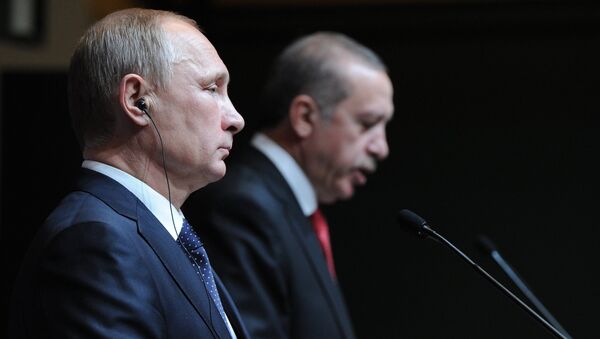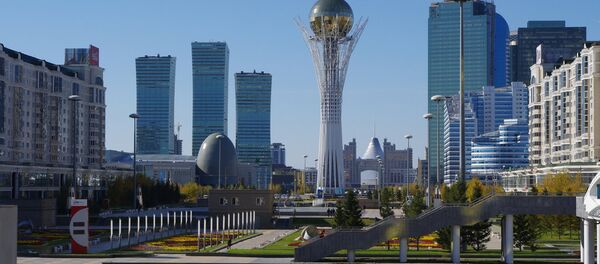During the conversation, Erdogan briefed Putin on the details of the shooting of Russian ambassador Andrey Karlov. The gunman shouted "we die in Aleppo, you die here" and "don't forget about Aleppo, don't forget about Syria, Allahu Akbar…" before Turkish security officials "neutralized" the threat. Early Monday, Maria Zakharova of the Russian Foreign Ministry corroborated reports that the shooting led to the untimely death of Karlov. Russian officials have since demanded the attack be labelled an act of terror.
2016 has been a brutally bloody year for Turkey featuring multiple Daesh attacks, a failed military coup that killed hundred of people while injuring many more, as well as ongoing violence related to the unresolved 'Kurdish issue.' The assassination of a Russian diplomat on Turkish soil adds to an already tumultuous year.
The assassination happened just one day before leaders from Russia, Iran, and Turkey were scheduled to convene for a meeting in Moscow. The foreign officials and defense ministers from the nations had planned to discuss the situation in Aleppo and the future of Syria.
While a Turkish foreign ministry agent told Reuters Monday it would not be a "miracle" meeting, but that it would at least provide a platform for each side to lay out their positions.
Relations between Moscow and Turkey strained after a Russia jet was gunned down by Turkish military forces, but tensions had eased after President Erdogan apologized to President Putin.
Turkey, a member of NATO, would like to see Syrian President Bashar al-Assad removed from power, while Russia and Iran have supported the Syrian government during the civil war.
Still, the goal of the meeting is to "listen to each other," according to the Turkish representative.
Despite the murder, the meeting in Moscow will still take place on Tuesday. The Turkish foreign minister received news of the lethal shooting while en route to the meeting. All sides agreed to move forward with the round table discussion despite the tragic death of Andrey Karlov.
Russian Foreign Minister Sergei Lavrov told reporters Monday that Russia hopes to speak "in detail and concrete terms" with regional partners who have effect change on the situation while noting that "our Western partners are busier with rhetoric and propaganda and aren't influencing those who listen to them."



